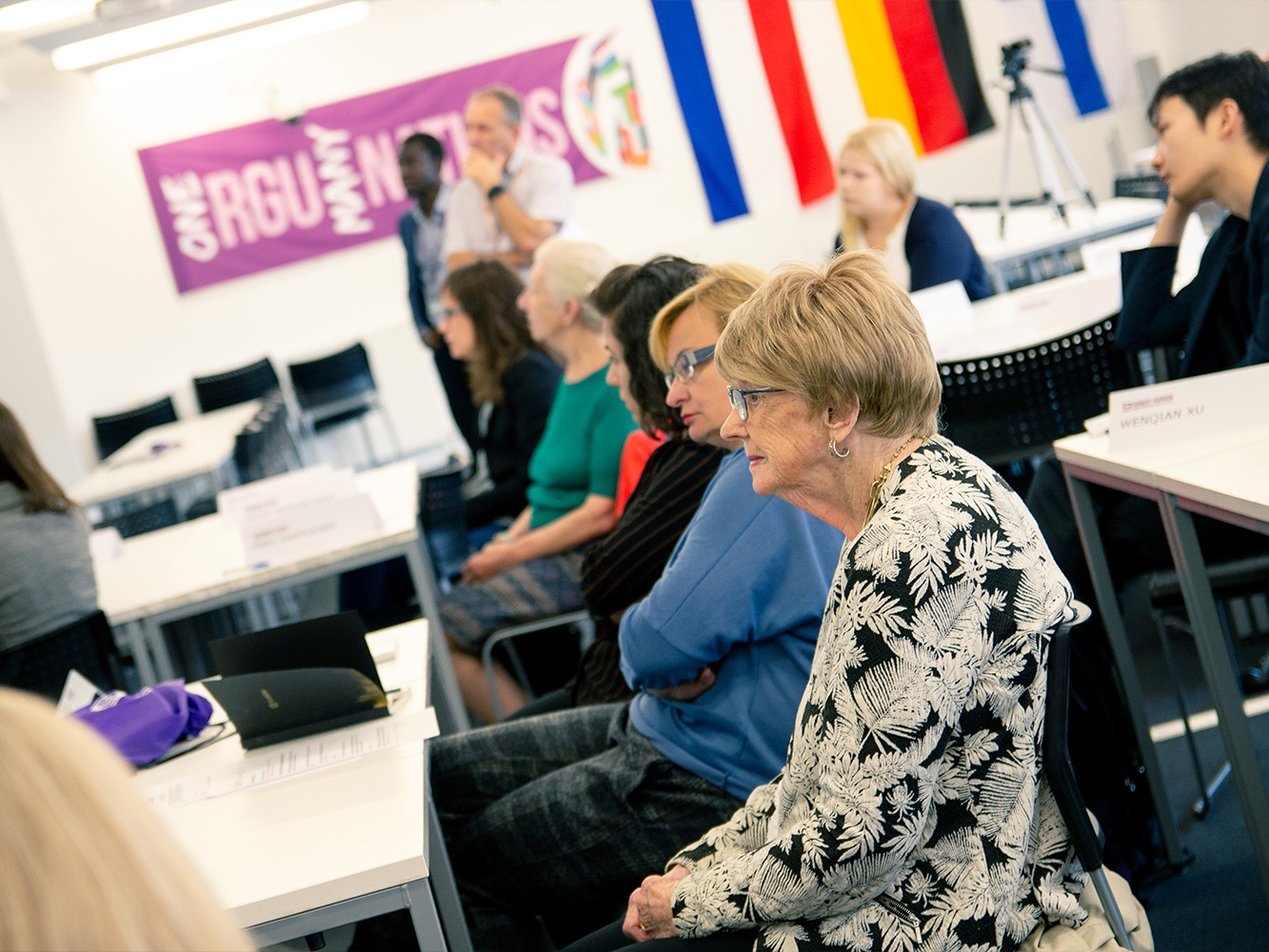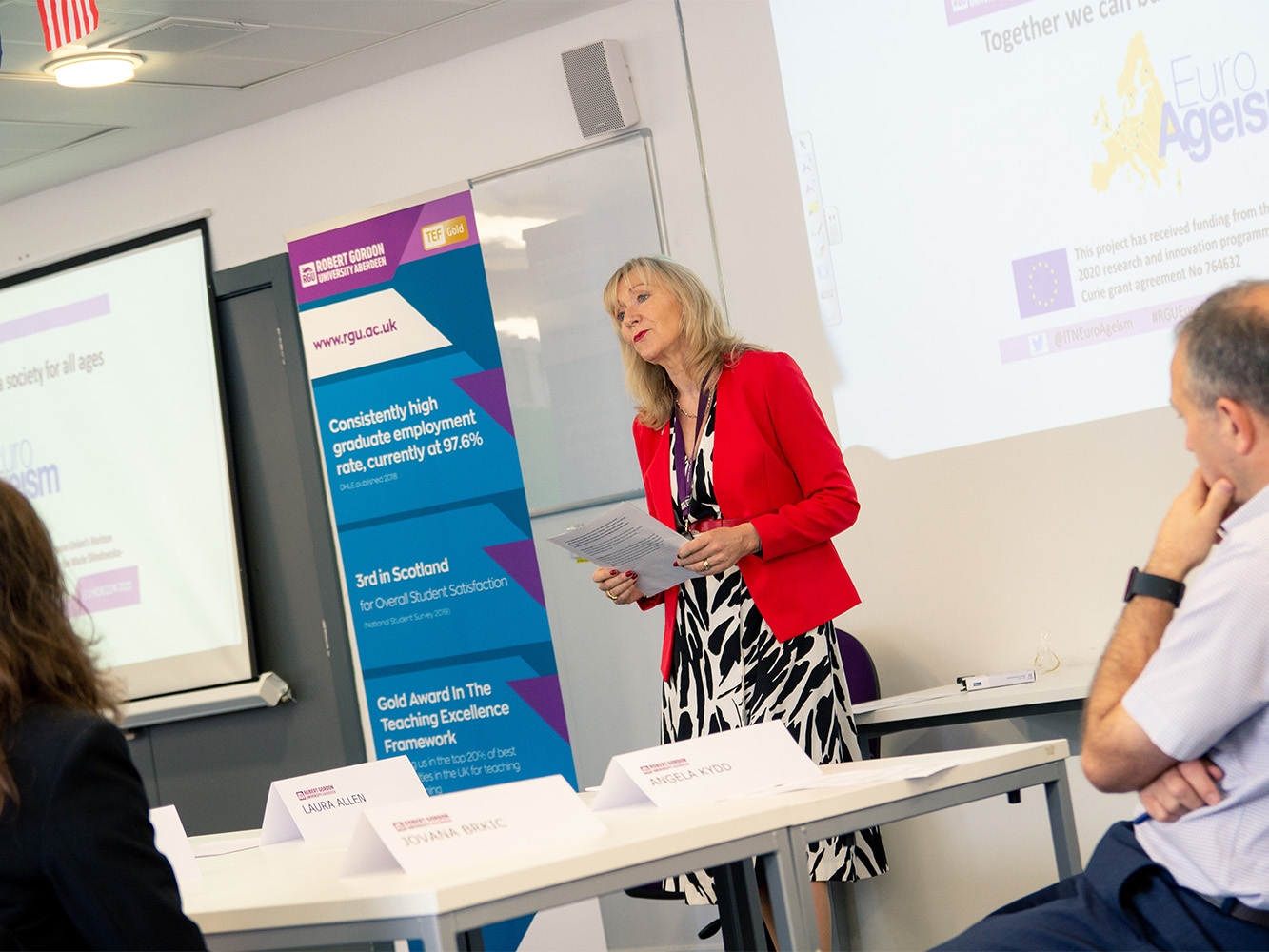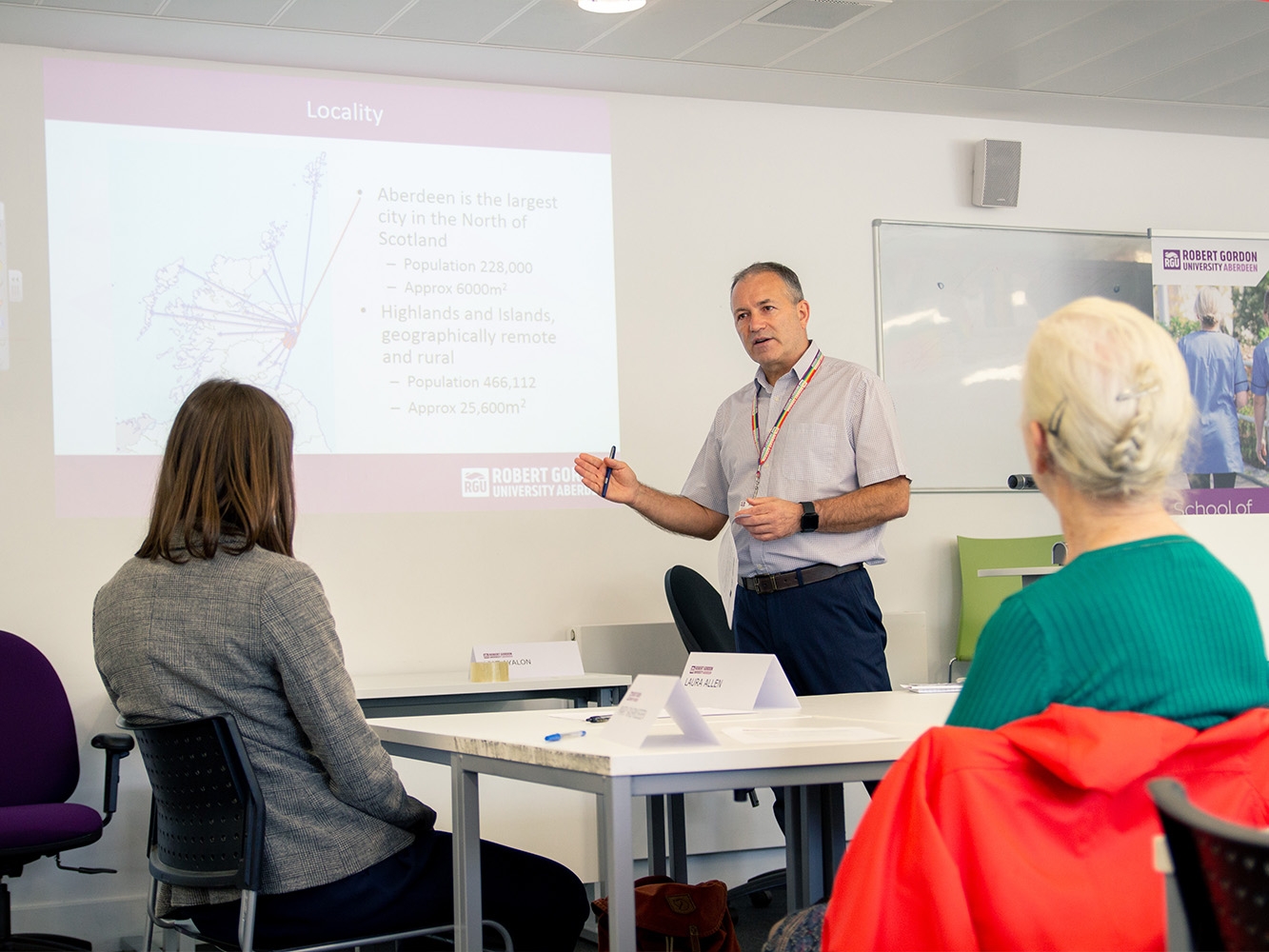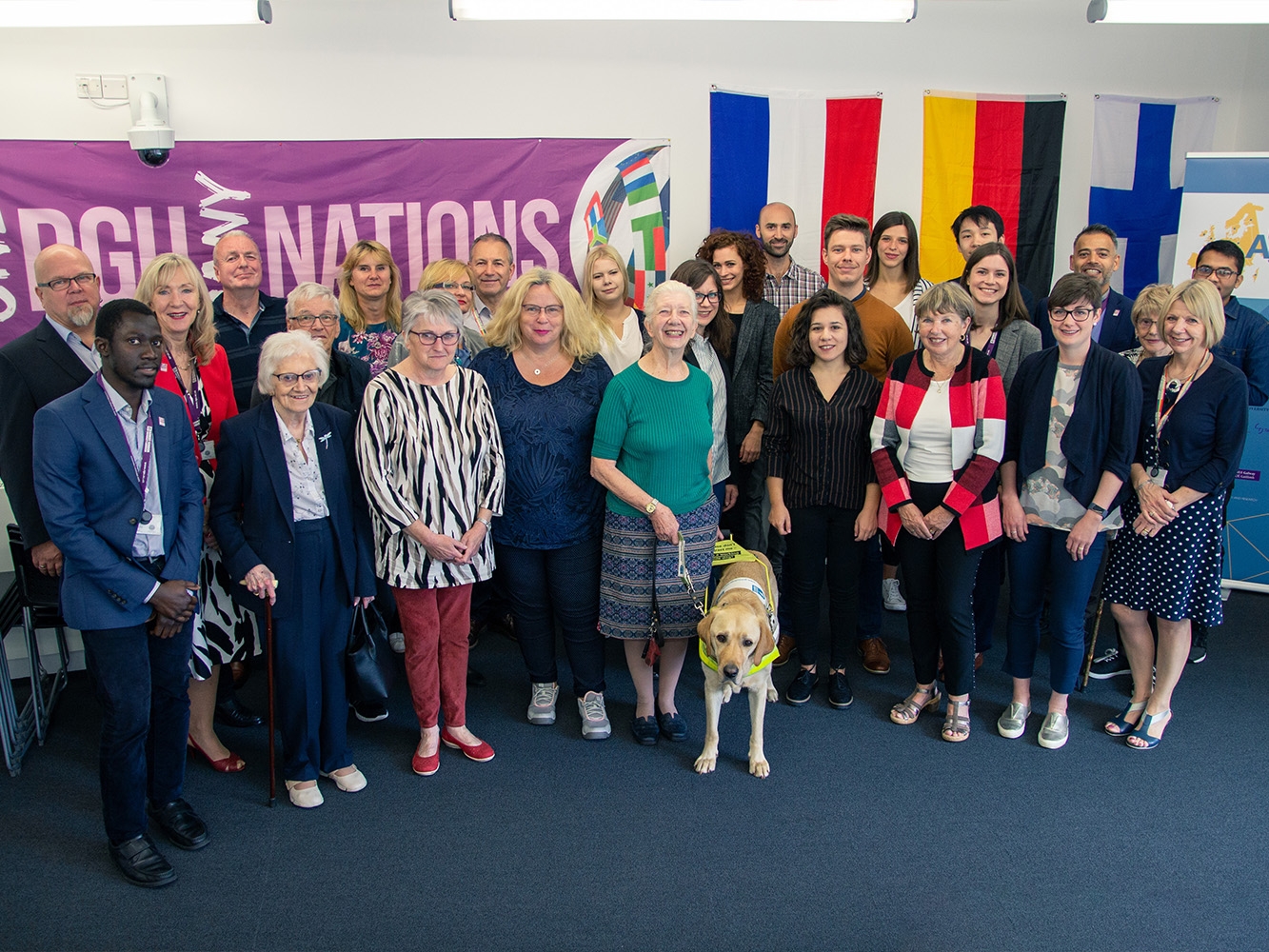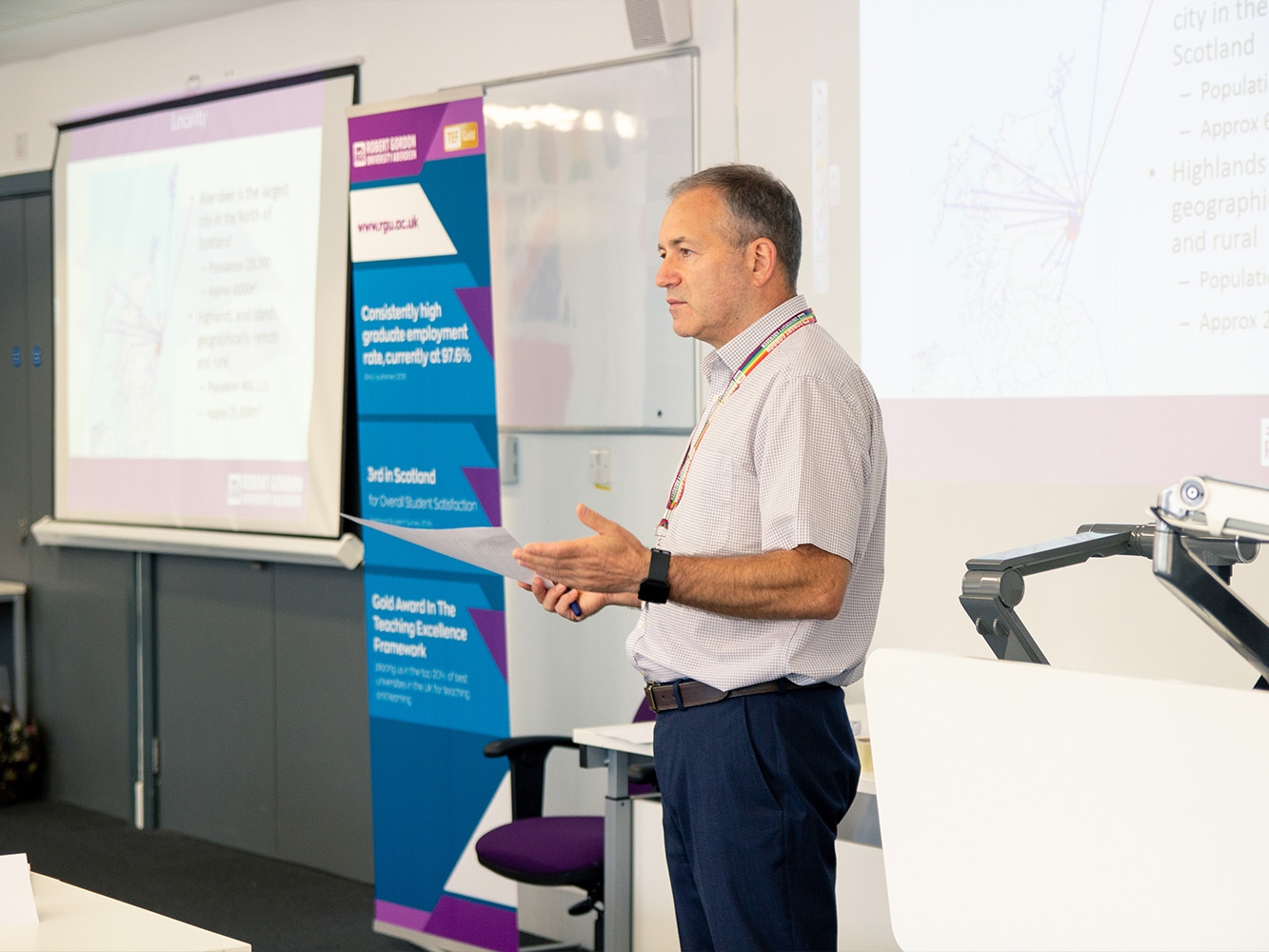Promoting an age-friendly society in Europe through interdisciplinary research
Monday 02 September 2019

Europe has the largest percentage of older adults worldwide, yet there is a high prevalence of ageism. RGU is partnered with EuroAgeism to help deliver an attractive multidisciplinary research training and supervision programme on ageism, creating dialogue around the issue and helping graduates of the program to capture positions as scientists, educators, advisers, policy advocates, lobbyists, and legislators in the field.
The 15 global PhD students are each researching one aspect of ageism in a number of settings – including health, care homes, education, employment and the media. The three-day conference began on Friday 30 August and provided the researchers with a forum to collaboratively explore the topic and to receive tuition on transferable skills in research, writing and showcasing their projects at a policy level.
RGU’s Professor Angela Kydd said: “This was the only event of its kind in Scotland. We are very proud of the initiatives we have and also very aware of the work we still have to do in promoting a world in which ageism has no place.
“We invited 20 people – aged 60 plus – to RGU from the local community so that they can join the discussions on the nature of ageism and share their experiences with the researchers.”
Angela is a partner in the EuroAgeism Innovation Training Network, funded by the European Union’s Horizon 2020 innovation programme, and is a research supervisor for two of the students.
The project is recognised across Europe, and global-academic partners from Israel, Poland, the Czech Republic, Sweden, Finland, the Netherlands and Ireland will all be in attendance.
Ian Murray, Head of School for Nursing and Midwifery at RGU, said: “The work of these International Early-Stage researchers is truly multidisciplinary and inter-sectorial. We are delighted to have this opportunity to contribute to ageism research through this prestigious EuroAgeism programme in support of a world where rights do not diminish with age.”
RGU sits among a network of organisations – spanning multiple sectors – also involved in the project which include the Health and Social Care Alliance Scotland, Age Platform Europe, the United Nations Economic Commission for Europe and the World Health Organisation.
Angela adds: “The research conducted in the training network is a direct response to the European Commission’s Active and Healthy Ageing initiative, with an overarching goal to improve the quality of life of older people by decreasing ageism in both clinical and social practice and in everyday life.
“By pursuing these 15 research projects, we will explore ways to improve the active participation of older adults in the workforce and promote an age-friendly society, which helps older adults to realize their full potential.”

